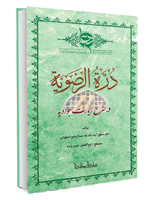- Prophet Muhammad (P.B.U.H&HF): Whenever one of you is needy and brings that to other people, he will not be satisfied. and Whenever someone is needy and brings that to Lord, he shall give him what he wants. sooner or later.
- Imam Sadiq (As.): Whenever you had tenderness in your heart, Pray. because your heart doesn't get tender unless it's pure.
- I told to Imam Baqir (A.S): “What is the meaning of “truly, Ibrahim was awwah and patient”? He replied: “Awwah means (the one who is) praying (to) and wailing (for God) a lot.””
- “Two people, who have acted alike, enter the heaven, but one of them sees the other one in a higher place. Then, he says: O’ Lord! How come has he a superior place in comparison to me while we acted alike? God the Almighty replies: “because he asked Me (whatever he needed) and you did not do that”.
- “The most knowledgeable person to God is the one who asks more from Him”
- “Whoever prays a lot, the angels say: This voice is familiar (to us) and this is the supplication which is accepted and this is the need which is provided”
-
The Holy Prophet (peace be upon him and his Household):
-
وَ لَوْ عَرَفْتُمُ اللَّهَ حَقَّ مَعْرِفَتِهِ لَزَالَتِ الْجِبَالُ بِدُعَائِكُم
If you knew god the way you should’ve known, Mountains definitely will be moved by your supplications. - Crying out of fear of God is the key to his mercy, it’s a sign for his acceptance and it’s a door to answering [supplications]
- Pray to God and believe in his answeres. But understand that God won't accept prays from an unwitting oblivious heart.
The educational and psychological effects of supplication
بسم الله الرّحمن الرّحیم
اللّهمّ صلّ علی محمّد و آل محمّد و عجّل فرجهم
Research on "The Relationship Between the Human Psyche and Supplication and its Role in Education"
Author: Mohammad Sobhani-Niya
The educational and psychological effects of supplication
Preface
One of the most crucial educational teachings of Islam is supplication. supplication covers all the educative aspects, including cognitive, sentimental (feelings) and conductive aspects. In the cognitive realm it covers self-cognizance, theology, and the recognition of responsibility while in the sentimental field, it has impact on increasing tranquility, strengthening reliance and trust in God, recognizing the human dignity and striving for improvement, as well as in the conductive and behavioral field, it is an effective factor in rectifying behavior and benefaction to others. Supplication also increases insight and guarding against the evil temptations.
While assuring the afterlife bliss for a religious person, the consequences and benefits of religiosity in this world are numerous as well, which unfortunately somehow are neglected. Considering the educational effects of supplication, one of the attractions of religiosity is the tendency to pray and benefit from its impacts in the worldly life. Imam Reza (PBUH) stated:
رَحِمَ اللَّهُ عَبْداً أَحْيَا أَمْرَنَا فَقُلْتُ لَهُ وَ كَيْفَ يُحْيِي أَمْرَكُمْ قَالَ يَتَعَلَّمُ عُلُومَنَا وَ يُعَلِّمُهَا النَّاسَ فَإِنَّ النَّاسَ لَوْ عَلِمُوا مَحَاسِنَ كَلَامِنَا لَاتَّبَعُونَا
“May God have mercy on the one who revives our teaching, (The narrator asked:) In what way he revives your teaching? His Holiness replied: He learns our knowledge and teaches them to people, since verily if people know the excellency and merits of our words, they surely follow us.” [1]
What does supplication mean?
Literal meaning
The Arabic word دُعا (Dua/supplication/prayer) is derived from the root word of “دَعَوَ” (Da’awa) which means a person derives someone’s or something’s attention by means of sound.[2]
Technical meaning
In the Islamic terms, the aforementioned word means turning attention towards God (Allah the Almighty) and asking Him with submission and humbleness.
According to the story of the lapse (Slipping not to do the best) of Adam, and requesting God for forgiveness, learning the words from God for how to pray, it can be said that supplication is one of the manifestations of God's mercy to man for his mistakes to be forgiven.
Supplication’s Value
In the Qur'an God states:
وَ قالَ رَبُّكُمُ ادْعُوني أَسْتَجِبْ لَكُمْ إِنَّ الَّذينَ يَسْتَكْبِرُونَ عَنْ عِبادَتي سَيَدْخُلُونَ جَهَنَّمَ داخِرينَ
“And your Lord has said: Pray unto Me and I will hear your prayer. Lo! those who scorn My service, they will enter hell, disgraced.”[3]
According to this verse, the supplication is valuable per se, and it is considered as an act of worshipping and those who disregard supplication will suffer humiliation and will soon enter hell. In a hadith (narration/tradition), Imam Baqir (PBUH) introduced supplication as the best form of servitude:
وَ أَفْضَلُ الْعِبَادَةِ الدُّعَاء
“And the best form of servitude/worship is supplication.”[4]
Also, the Prophet (PBUH&F) considers supplication as the core of any sort of worship:
الدُّعَاءُ مُخُّ الْعِبَادَةِ
“Supplication is the essence of servitude”[5]
Therefore, it can be concluded that supplication is valuable per se, because it is [6]an expression of submission to God, and it has the same value as (the principal religious rituals such as) obligatory daily-five-time prayers, fasting (during month of Ramadhan), Hajj (Mecca pilgrimage), etc., as the Commander of the Faithful states:
أَحَبُّ الْأَعْمَالِ إِلَى اللَّهِ فِي الْأَرْضِ الدُّعَاءُ
“The most beloved of deeds to Allah the Almighty on Earth is supplication/prayer”;[7]
And because it is a prerequisite to meeting needs and solving worldly problems, it has a preliminary value.
By explaining the above two aspects of worthiness, it can be said that in addition to the fact that supplication should be viewed from the requesting aspect, it is also a way of freeing oneself from worldly affairs - which has currently obsessed mankind - and turning towards God and expressing servitude, which has a very high educational value. And achieving this goal is possible by benefiting from the teachings hidden in the supplications and pilgrimage salutations of the Infallibles.
Although there are supplications and recitations in all religions, what distinguishes the supplications in Islam is its rich and effective content in all aspects of life. In other words, supplication is considered to be part of revelation; in the sense that what God has revealed in the Qur'an in the form of man-making instructions, has been interpreted and described in the supplications of the Infallibles (The Prophet and His Household), and according to the words of the Qur'an:
قُلْ ما يَعْبَؤُا بِكُمْ رَبِّي لَوْ لا دُعاؤُكُمْ فَقَدْ كَذَّبْتُمْ فَسَوْفَ يَكُونُ لِزاماً
“Say (O Muhammad): My Lord would not concern Himself with you but for your prayer”,[8]
(the important role of supplication becomes more evident in humans’ life).
The educational effects of supplication
As aforementioned, education has three fields: cognitive, sentimental and conductive. And the doctrine of supplication covers all of the three fields like a full-fledged educational school:
Cognitive domain
Theology/God-Cognizance
One of the most effective ways to avoid sin is cognition of God and the belief of being in His presence. A person who believes that God watches over his actions more than humans, will not be affected and influenced by Satan's deception, nor will he go towards sin.
The narrated supplications are full of high-level teachings of monotheism, using the most subtle expressions derive the man’s attention towards God, and it is far from exaggeration to say that the long statements contained in the supplications of the Infallibles (PBUT) cannot be found in any book, even in the holy books of other religions as well as in the writings of any Muslim or non-Muslim thinker.
An example of these concepts is collected in the noble supplication of al-Jawshan al-Kabir (Great Battle Armor/Shield), which somehow expresses all the levels of monotheism. This supplication, which consists of 1000 names and phrases of the God’s divine names and attributes, leads a person to a deep understanding of God and strengthens his monotheistic belief, and according to the statement of the Commander of the Faithful, the greatest divine name is also hidden among these names.
The supplication of Imam Hossein (PBUH) on the day of Arafah (a day in the yearly Hajj pilgrimage) is another example, which is full of advanced concepts containing monotheistic themes and theology; in this supplication, the attributes of the Lord and the wonderful creation of man, blessings of God such as mother's milk, food, clothes and protection from all kinds of dangers.
Self-Cognizance
Both in psychological and psychotherapy schools, self-knowledge is always the beginning of self-improvement. And in divine schools, especially Islam, self-knowledge is the basis of all success; Because correct realization and understanding will lead to setting the right goals, knowing the right path and ultimately achieving happiness and success. If the correct knowledge is gained, man knows his imperfections, needs, dependencies and defects, and with the desire for perfection and immortality he recovers in himself, ultimately reaches God, who is the absolute perfection.
This cognizance or intuitive knowledge keeps away a person from becoming rebellious and oppressive; Since he always finds himself poor and does not become arrogant. For this reason, the Commander of the Faithful states:
أَفْضَلُ الْمَعْرِفَةِ مَعْرِفَةُ الْإِنْسَانِ نَفْسَه
"The best cognizance is the cognizance of man of himself."[9]
These concepts and meanings, in the most eloquent form, are available in the supplications of the infallible imams (peace be upon them). Two examples of these excellent concepts are in the supplication of Imam Sajjad and Arafah Supplication of Imam Hossein (peace be upon him):
مَا أَنَا يَا رَبِّ وَ مَا خَطَرِي هَبْنِي لِفَضْلِكَ وَ تَصَدَّقْ عَلَيَ بِعَفْوِك
“And what am I, O my Lord? And what is my danger? Grant me Your grace and be gracious to me with Your forgiveness.”[10]
Imam Hossein (PBUH) in a verse of the grace-filled supplication of Arafah states:
إِلَهِي أَنَا الْفَقِيرُ فِي غِنَايَ فَكَيْفَ لَا أَكُونُ فَقِيراً فِي فَقْرِي إِلَهِي أَنَا الْجَاهِلُ فِي عِلْمِي فَكَيْفَ لَا أَكُونُ جَهُولًا فِي جَهْلِي
“O my God, I am needy despite my richness; so, how can I not be needy in my neediness? O my God, I am ignorant despite my knowledge; so, how can I not be more ignorant in my ignorance?”[11]
These noble statements come from the depth of the Infallible Imam’s cognizance and knowledge of himself. In other words, it is the human being who finally reaches the knowledge and cognizance of God and true monotheism. This supplication teaches us that in the light of appealing to God, man admits his neediness and poverty and connects himself with the dominion of heavenly kingdom.
God the Almighty states in the Qur'an:
يا أَيُّهَا النَّاسُ أَنْتُمُ الْفُقَراءُ إِلَى اللَّهِ وَ اللَّهُ هُوَ الْغَنِيُّ الْحَميدُ
“O mankind! You are the poor in your relation to God, while God, He is the Absolute rich, the Praiseworthy.”[12]
It is very obvious that the aforementioned supplication is a reflection of these honorable verses from the Qur'an.
There are many other examples in the supplications of the Infallible Imams, showing the impact of supplication on personal improvement, self-cognizance and ultimately God-cognizance (theology).
وَ اجْعَلْ غَدِي وَ مَا بَعْدَهُ أَفْضَلَ مِنْ سَاعَتِي وَ يَوْمِي
“Make my morrow and what comes after it, better than my present hour and my present day.”
Sunday supplication focuses on the lifespan value and on taking daily steps towards improvement.
اللَّهُمَّ اغْفِرْ لِيَ الذُّنُوبَ الَّتِي تَحْبِسُ الدُّعَاء
“O God, forgive me those sins which withhold/prevent supplication!”
Kumail supplication indicates looking for problems within ourselves and cleaning the vices from within.
فَاجْعَلِ اللَّهُمَّ صَبَاحِي هَذَا نَازِلًا عَلَيَّ بِضِيَاءِ الْهُدَى وَ السَّلَامَةِ فِي الدِّينِ وَ الدُّنْيَا وَ مَسَائِي جُنَّةً مِنْ كَيْدِ الْعِدَى وَ وِقَايَةً مِنْ مُرْدِيَاتِ الْهَوَى
“So, make, O' God, this morning of mine, descend upon me with the radiance of guidance and safety in religion and this world! And [make] my evening a shield against the deception of enemies and a protection against the destructive blows of caprice!”
The Sab'ah (morning) supplication, indicates that one should ask God for guidance every moment and take refuge in God from both the external and internal enemies.
The supplications that have reached to us from the religious leaders have deep knowledge and concepts, which are very effective in spiritual and moral development if a person follows them continuously. Such as the Fifteen supplications (Munajat-al-Khamsah-Ashar) from Imam Sajjad (PBUH), the Dawn Supplication (Dua Sahar) the Sha'baniyah supplication, the Abu Hamza Thumali supplication, the Moral Merits supplication (Makarem al-Akhlaq), the Kumeyl Supplication, etc.
Responsibility
The religion figures using subtle and gentle expression, teach responsibility and social behavior to mankind and remind him that by this method, he should resemble God as much as possible. For example, in verse 14 of Surah Taghabun, we recite:
وَ إِنْ تَعْفُوا وَ تَصْفَحُوا وَ تَغْفِرُوا فَإِنَّ اللَّهَ غَفُورٌ رَحِيمٌ
“And if you pardon and forbear and forgive, then surely Allah is Forgiving, the Merciful.”
In this verse, which talks about forgiveness, people are reminded that you also resemble God who is the origin of forgiveness and pardon, be kind and do good even to the evildoers, to those who mistreat you, because if you do so, you would have resembled God.
Imam Sajjad's supplications about gentleness, inquiring about the condition of the patient, tolerance towards neighbors, etc. are likewise.
The sentimental field
The cognitive dimension mostly deals with reasoning and human intellect. But the sentimental (related to feeling) dimension is related to the feeling center, which is the human heart. Supplication provides proper content for this field, as well:
Increasing attachment to the Creator
Sentimental attachment is one of the characteristics that manifests itself at birth in the form of attachment of the newborn baby to his/her mother, crying and clinging to her, and in adulthood, it crystallizes in supplication, recitation, and ritual behaviors.
In this dimension, we reach the highest level of supplication where we find God as the only being worthy of love, we talk with God lovingly and ask Him His love and the love of his beloved ones. As in al-Sahifa of al-Sajjadiya Imam Sajjad (PBUH) prays:
وَ أَسْأَلُكَ حُبَّكَ وَ حُبَّ مَنْ يُحِبُّك
“(O God,…) and I ask You for Your love and the love of those who love You.”
And in a statement or verse of Abu Hamzah supplication we come across the following sentence:
وَ لَئِنْ أَدْخَلْتَنِي النَّارَ لُاخْبِرَنَّ أَهْلَ النَّارِ بِحُبِّي لَك
“(O God), if you admit me to Hellfire, verily I would announce to the inhabitants of Hellfire about my love for you.”
Benevolence
Benevolence is one of the effects of supplication in the sentimental dimension, and supplication basically leads a person towards benevolence, because this is one of the prerequisites and conditions for supplication to be accepted and responded. Therefore, you pray for your brothers before you pray for yourself, which is one of the most obvious manifestations of human benevolence for the fellow human beings.
This issue is also emphasized on in the hadiths of the Infallible leaders. The Messenger of God (PBUH&F) said:
مَا مِنْ مُؤْمِنٍ دَعَا لِلْمُؤْمِنِينَ وَ الْمُؤْمِنَاتِ إِلَّا رَدَّ اللَّهُ عَزَّ وَ جَلَّ عَلَيْهِ مِثْلَ الَّذِي دَعَا لَهُمْ بِهِ مِنْ كُلِّ مُؤْمِنٍ وَ مُؤْمِنَةٍ مَضَى مِنْ أَوَّلِ الدَّهْرِ أَوْ هُوَ آتٍ إِلَى يَوْمِ الْقِيَامَةِ
" No believer supplicates for the believers, men and women, but that God the Almighty and the Majestic responds to him in the same way He supplicated for them, from every male and female believer who have lived since the beginning of time or are coming until the Day of Resurrection." [13]
A similar meaning can be found in the supplication of the holy month of Ramadhan[14], and of course it is clear that such supplication will be effective if it is accompanied by action; In the sense that he should not just pray but he should take a step to help his believing brother.
Tranquility
Peace or tranquility has always been missing to man, and man has been searching for peace in his efforts and struggles. From the religion point of view, the only source of peace is the remembrance of God, and supplication is one of the most obvious manifestations of being conscious of God.
Dua or supplication is the expression of all the unsaid words of mankind to the owner of all secrets and the knower of the visible and invisible. Shedding tears and lightening the heart are among the positive consequences of supplication and remembrance of God which is hidden in supplications. By praying, a person not only asks God for his needs, but also enjoys the implicit impact of supplication and appealing, which is the peace and tranquility regarding the feeling aspects and become disburdened from negative emotions, which itself causes spiritual growth and development.
In his research, William Nelson Pendleton came to the conclusion that “while praying, feelings of joy, ecstasy, spiritual experience, and peace of mind are at their highest level.”[15]
Another consequence of supplication is intimacy to the Lord. In the eighth supplication of the Khamsa Ashar supplications, Imam Sajjad (PBUH) prays:
وَ فِي مُنَاجَاتِكَ رَوْحِي وَ رَاحَتِي
“And in my secret conversing and appealing to you (Munajat) is my joy and tranquility”.
Expressing the hopeful words of supplication increases mind power and the power of dealing with frightening situations and mental pressures. We read an example of these hopeful expressions in Mashlool (The Supplication of the Paralytic Man) supplication:
يَا غِيَاثَ الْمُسْتَغِيثِينَ...يَا صَاحِبَ كُلِّ غَرِيبٍ يَا مُونِسَ كُلِّ وَحِيدٍ يَا مَلْجَأَ كُلِّ طَرِيد
“O Helper of those who seek aid! ... O Companion of every stranger! O Intimate of everyone alone! O Refuge of every outcast!”
In his research, Harold G. Koenig showed that "Different types of supplications and meditation can provide health and all types of prayer or meditation can help improve health in some way."[16]
Dale Carnegie also admits that: "psychiatry teaches the same things that the prophets used to teach; Because spiritual doctors have found that prayer and having a firm faith in religion diminishes worry, confusion, excitement and fear, which are the causes of most of our uneasiness.[17]
Supplication teaches us to even ask God for the success and having the opportunity to pray; In the seventh supplication of the Khamsa Ashar supplications, Imam Sajjad (PBUH) presents to God as follows:
وَ مَتِّعْنَا بِلَذِيذِ مُنَاجَاتِكَ ... وَ أَذِقْنَا حَلَاوَةَ وُدِّكَ وَ قُرْبِك
“And bestow upon us the pleasure of whispered praying to You… and let us taste the sweetness of Your affection and intimacy”.
The sense of being worthy
It is the human nature that always seeks to preserve its dignity, and the need for a sense of being worthy is considered to be one of the preliminary and supreme human needs. This feeling will be followed by self-confidence, strength, and a sense of usefulness, and being void of it, will induce a sense of emptiness and helplessness.
Supplication is very effective in increasing this need in a person's existence. In fact, supplication gives a person the assurance that he has a strong supporter in all problems, and this belief makes him not feel hopeless while encountering with the factors that threaten his sanctity.
As it was said, supplication makes a person to resemble God, and adorning himself with divine attributes creates a high level of self-confidence in him.
And the supplication that helps us to achieve God-cognizance, leads us to believe that glory altogether belongs to God. In verse 8 of Surah Al-Munafiqun God the Almighty states:
وَ لِلَّهِ الْعِزَّةُ وَ لِرَسُولِهِ وَ لِلْمُؤْمِنين
“…glory belongs unto God, and unto His Messenger and the believers….”
What makes us worthy to receive divine honor and glory is to abandon others but God and anchor our heart to the glory of God only. Therefore, the wise Luqman says to his son:
فَإِنْ أَرَدْتَ أَنْ تَجْمَعَ عِزَّ الدُّنْيَا فَاقْطَعْ طَمَعَكَ عَمَّا فِي أَيْدِي النَّاس
“(My son), if you want to collect the might of the world, stop coveting from what is in the hands of people.”[18]
In the 20th supplication of al-Sahifa al-Sajjadiyya, in his educational address, Imam Sajjad (PBUH) says to God:
اللَّهُمَّ اجْعَلْنِي أَصُولُ بِكَ عِنْدَ الضَّرُورَةِ، وَ أَسْأَلُكَ عِنْدَ الْحَاجَةِ، وَ أَتَضَرَّعُ إِلَيْكَ عِنْدَ الْمَسْكَنَةِ، وَ لَا تَفْتِنِّي بِالاسْتِعَانَةِ بِغَيْرِكَ إِذَا اضْطُرِرْتُ، وَ لَا بِالْخُضُوعِ لِسُؤَالِ غَيْرِكَ إِذَا افْتَقَرْتُ
"Oh my God, make me leap to You in times of distress, ask from You when I'm in need, and plead to You in misery! Tempt me not to seek help from other than You when I am distressed, to humble myself in asking from someone else when I am poor.”
Improvement and excellency
Supplication is a dialogue between the creator and the creature. This conversation is a factor of human growth; Because by taking refuge in supplication, man protects himself against his, according to the Qur'anic verse, rebellious and greedy-anxious nature; As God in the Qur'an introduces improvement, excellence and remaining immune to the rebellious ego by being in contact with the eternal source of divine power.[19]
In the supplication of Sabah from the Commander of the faithful, we recite:
إِلَهِي أَ تَرَانِي مَا أَتَيْتُكَ إِلَّا مِنْ حَيْثُ الْآمَالِ أَمْ عَلِقْتُ بِأَطْرَافِ حِبَالِكَ إِلَّا حِينَ بَاعَدَتْنِي ذُنُوبِي عَنْ دَارِ الْوِصَالِ فَبِئْسَ الْمَطِيَّةُ الَّتِي امْتَطَتْ نَفْسِي مِنْ هَوَاهَا فَوَاهاً لَهَا
“My God, do You see that I have only come to You from the direction of hopes, or clung to the ends of Your cords when my sins have driven me from the realm of union? So, what an evil mount upon which my soul has mounted its caprice! Woe upon it"
In these statements, which have an educational expression, His holiness takes refuge in God from his rebellious soul and asks only God for his wishes. Imam Hossein, peace be upon him, in a verse of the Arafah supplication, counts all that a servant has, describing atheism and being away from God, as the absolute poverty of a servant.[20] And being in need of God is the highest level of a human being, which you obtain affluency with intimacy to God - not worldly wealth and neediness – and you see poverty and neediness with the absence and lack of connection and intimacy to God. At this time, the servant is so absorbed in the Creator that he forgets his inferior and insignificant needs.
Behavioral field
Beliefs do not manifest externally until they are transformed into behavior. This is where the educational role of supplication shows itself:
Behavioral correction
In this dimension, whatever the supplication has taught us depicts outwardly and becomes the morals and behavior of a faithful person, and terminologically, from the valley of "religious knowledge" to the valley of "religiosity." What we have expressed about the supplications’ themes, they, if implemented, play an educational role as well as influencing improvement.
Reciting the Sunday supplication, the reciter learns that effort and growth is a daily requirement, and he implements the same pattern. Kumail supplication makes him conscious of his inner veils, and as a trained human being in the supplication school, practically, will seek to remove the veils. There are also long themes of Arafa supplication, Makarem al-Akhlaq supplication etc...
Charity/ Benevolence
Benefaction is the practical aspect of benevolence for other people. Such an interpretation from the teachings of supplications directs the behavior of a believer. The highest level of benevolence is to pay attention to the improvement of other people.
Healing
Regarding the healing aspect of supplication, it is enough to say that it heals a person’s mental and spiritual diseases as well as moral vices. It is through supplication that a person understands the meaning of submission. When we say in the etiquette of supplication that first you consider your neighbor then yourself, shows overcoming the sense of superiority, benevolence, giving importance to others, humility, etc. Additionally, supplication protects a person from vices such as arrogance, envy, egoism.
Consciousness
Negligence is one of the world's lesions and evils; Getting involved in worldly affairs make us negligent of ourselves. Supplication, like a pure river, washes away the neglects and takes us back to our origin, reminding us of the path we should take and it clarifies our path to the main goal, which is to adjoin with the Creator.
Giving Insight
Insight shows itself in saving man from temptations and satanic obsessions and as glowing lamp, guides the believer in the confusing situations. The function of supplication in giving insight is the enlightenment of the conscience that raises the thinking and reasoning factor in the believer and in all situations keeps him connected to the divine source.
Conclusion
We conclude that what places us on the right path and makes us a religious person, is the followings: God-knowledge or cognizance, recognizing the goal and finally, the right deeds. In this path, correct self-cognizance, peace, confidence and self-dignity, excellence, benevolence and clear conscience are all that we need; And the exalted teachings of supplications, which are reflections of the divine Quranic verses, as a comprehensive educational package, accompany and guide us towards our goal and destination.
Bihar al-Anwar, volume 2, page 30[1]
[2] Al-Maqayes al-Loghah dictionary, volume 2, page 279
[3] Surah Gh’afir, verse 60
Al-Kafi, volume 2, page 466. [4]
Bihar al-Anwar, volume 90, page 300.[5]
[7] Al-Kafi, volume 2, page 467
[8] Surah Furqan, verse 77
[9] Ghorar Al-Hikam, Volume 2, page 385.
Al-Balad Al-Amin, Volume 1, page 205[10]
Bihar al-Anwar, volume 95, page 216[11]
[12] Surah Fatir, verse 15.
[13] Al-Kafi, volume 2, page 508
[14] Supplication: “O God, bring happiness to the people of the graves.” A prayer that is recommended after every obligatory prayer in the holy month of Ramadan
[15] Collection of articles, Islam and mental health, volume 1, page 260
[16] Ibid.
[17] Dale Carnegie, How to Stop Worrying and Start Living, translated by Jahangir Afkhami, p. 188.
[18] Mustadrak al-Wasa’il, volume 12, page 69
[19] Surah Baqarah verse 187; Surah Ma'araj, verse 20
[20] “What can a person obtain while he has lost You? What a person loses while he has found you?”






